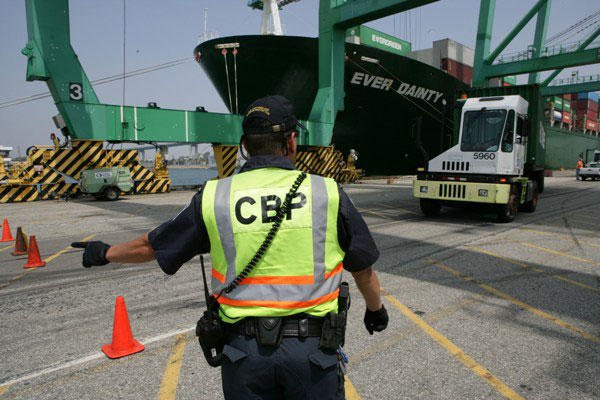A subcontractor responsible for the ocean shipment of troops’ cars worldwide has been ordered by a judge to continue shipping for the Defense Department until a decision on a contract dispute can be reached in court.
Liberty Global Logistics (LGL), based in New York, is a subcontractor for International Auto Logistics (IAL), which is responsible for assuring troops’ cars are shipped to and from duty stations overseas and returned to their owners. When a contract dispute over payment and other requirements between the two companies resulted in a decision by LGL to stop work Oct. 20, IAL petitioned the U.S. District Court Southern Georgia District for an injunction, according to court documents.
The temporary restraining order requires LGL to continue to ship and process troop and government civilian employee vehicles in its care. U.S. District Judge Lisa Godbey Wood ruled that LGL’s plan to cease operations would harm “the [U.S.] government's ability to move troops around the world in an orderly and predictable manner.”
The restraining order ends Oct.23 when a second hearing on the subject is scheduled in Brunswick, Georgia, where IAL is based.
IAL took over the personal vehicle shipping contract May 1, the start of what Defense Department officials have called the busiest vehicle moving season on record. But service members soon started complaining that their vehicles were months past their delivery dates and seemingly lost in the system.
Officials with IAL have blamed the delays on a variety of factors including the volume of cars placed in their care, US Customs paperwork problems and a system providing faulty tracking information for vehicles in transit on ocean liners.
Now the broken tracking system is one of six reasons LGL has given for wanting to back out of its contract. Because IAL failed to combine their system with LGL’s to track shipments, they were unable to fulfil their obligations, LGL officials said.
“In addition to manpower, delaying [electronic data interchange] implementation has far greater negative operational and financial impacts including, but not limited to, data errors/mistakes, velocity, duplication, missed pickup/deliveries, booking issues, service member claims, demurrage and detention as well as vehicle storage, just to name a few,” wrote Robert Wellner, LGL’s executive vice president in a July letter to Doug Tipton, IAL’s president and chief executive officer and Ken Quinn, the company’s senior vice president and chief financial officer.
As of Oct. 17, IAL owed LGL $6.3 million in late payments and an additional $14.3 million in other payments, according to LGL’s notice of termination submitted Oct. 17. IAL’s problems with US Customs also violate LGL’s contract, they wrote.
“IAL’s total failure to properly manage the customs process has been grossly negligent, has damaged LGL, has undermined the performance of [the contract], and constitutes a violation of the agreement,” the notice says.
IAL officials decline to comment due to the ongoing legal process, and representatives of LGL did not return calls for comment.
Officials with US Transportation Command (TransCom), which oversees the shipping contract, also declined to comment.
“U.S. Transportation Command is aware of the issue, but we are not a litigant in this matter,” said Cdr. Dave Nunnally, a TransCom spokesman. “It would be inappropriate for us to comment on this litigation. Likewise, we cannot speculate on potential actions that may result from this litigation.”
In July, 70 percent of the nearly 27,500 vehicles shipped since May 1 were delivered after their arrival deadlines, DoD officials reported. As of Oct. 1 about 36,500 cars had been received by IAL, according to officials there. Of those, more than 21,500 had been delivered, and 2,300 were waiting pick-up, they said.
-- Amy Bushatz can be reached at Amy.Bushatz@military.com


























